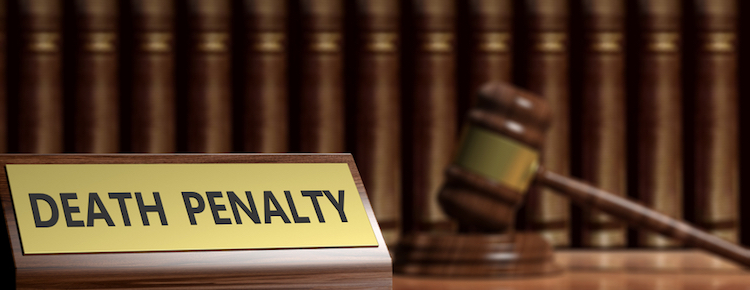[ad_1]
U.S. Supreme Court
Supreme Court declines to block 4 executions in 2 days; 1 inmate spared, for now, because of vein issues

Image from Shutterstock.
The U.S. Supreme Court this week declined to block four executions over the course of two days, rejecting petitions claiming incompetence for execution, difficulty inserting intravenous lines, lack of a clear policy on religious rights and new exculpatory evidence.
SCOTUSblog covered all four cases, ending with coverage of Oklahoma inmate Richard Fairchild, who had claimed that mental illness made him incompetent for execution. There were no dissents.
The other inmates turned aside Nov. 16 and 17 were Murray Hooper of Arizona, Stephen Barbee of Texas and Kenneth Smith of Alabama. Hooper, Barbee and Fairchild were executed, according to the Associated Press. But Smith’s execution was called off when executioners were unable to insert an intravenous line before the death warrant expired, the New York Times reports.
Smith’s lawyers had pointed to a previous July execution in which Alabama executioners also had trouble inserting a line. The inmate, Joe Nathan James, was finally killed after executioners apparently sliced into his arm in what is known as a “cutdown.” Smith’s lawyers had argued that intravenous line problems could cause an unconstitutionally cruel death.
The high court’s justices refused to block Smith’s execution Nov. 16 and again Nov. 17. The last order noted that three dissenting justices would have stayed the execution. They were Justice Sonia Sotomayor, Justice Elena Kagan and Justice Ketanji Brown Jackson.
The liberal justices did not note dissent to the Supreme Court’s refusal to stay the other executions.
Jurors had recommended life imprisonment for Smith, who was convicted for killing a woman at the behest of her husband, a pastor. A judge overrode that decision. Alabama later banned that practice, but the ban was not made retroactive.
[ad_2]




